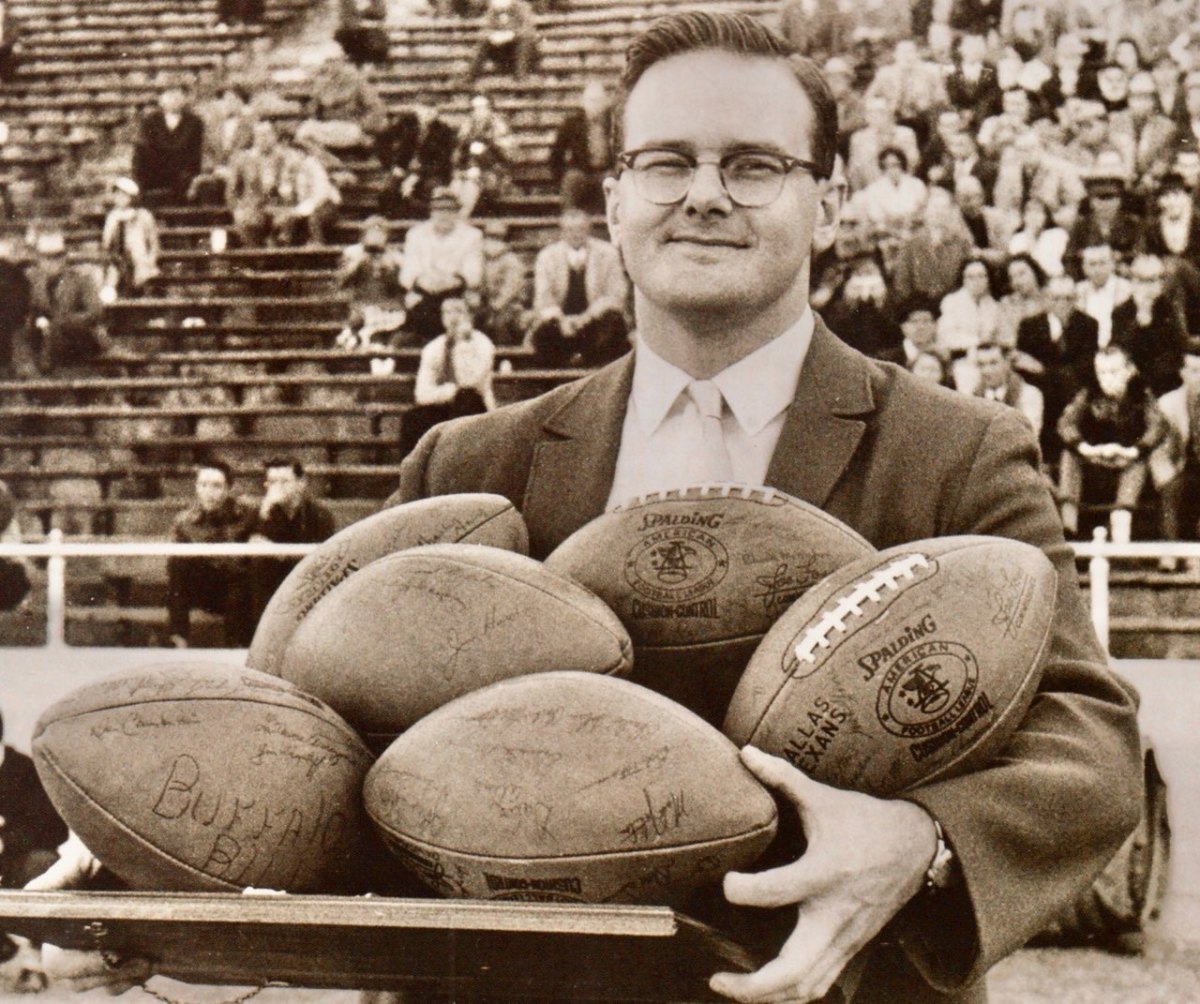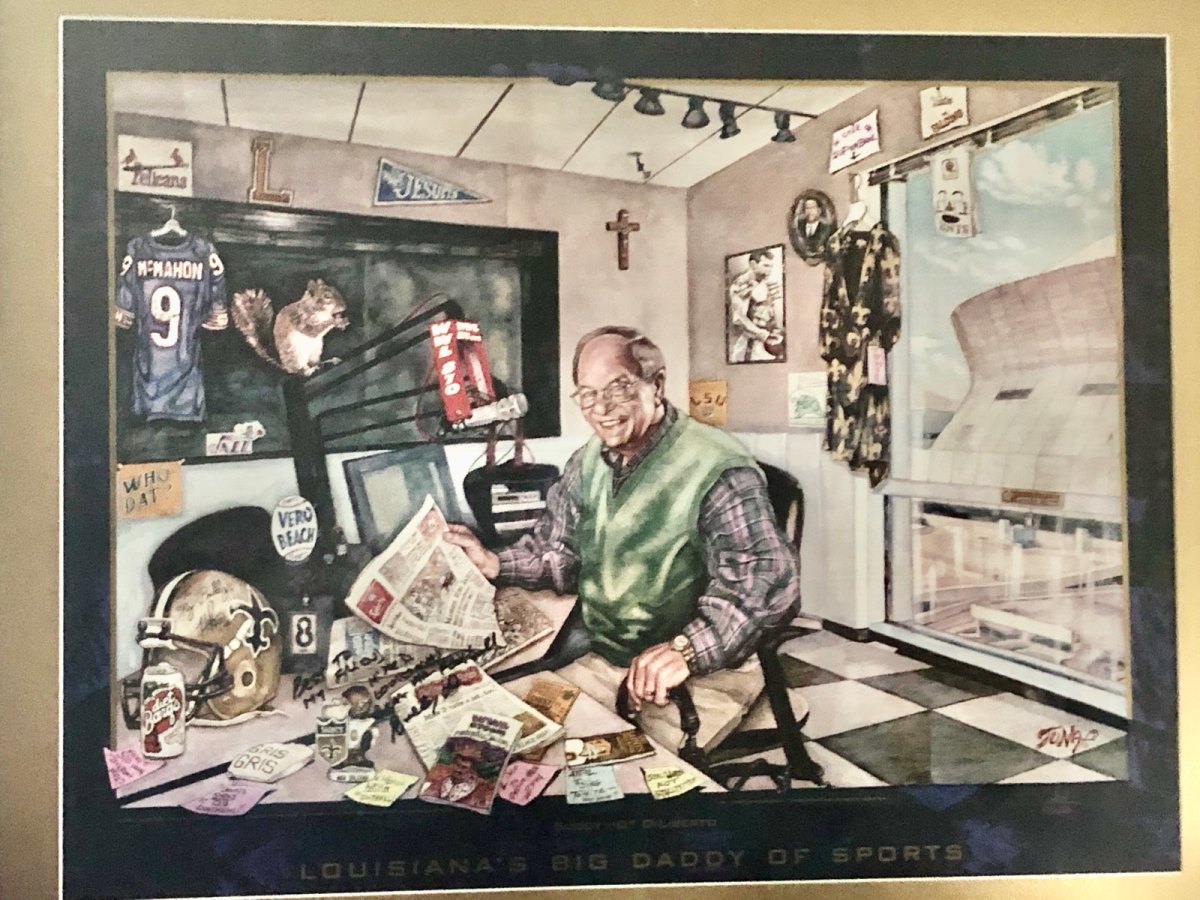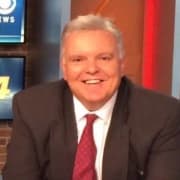How New Orleans got an NFL Team, by Mike Detillier - Part 2
In 2003, then WWL Radio Sports Director, Buddy Diliberto, spoke to me about obtaining as much information as possible on how New Orleans got an NFL team.
Diliberto first covered the beginning of getting a professional football team in the newspaper business and then covered the New Orleans Saints on television and the radio.
We both went to a host of different sources to get the behind the scenes information for the book, but in early 2005 Diliberto passed away, and I put our information away.
In this nine-part series on "How New Orleans got an NFL Team," I will give you the information from a host of sources. Mainly the most vital piece to get the New Orleans Saints was Dave Dixon. Dixon worked behind the scenes to place a team in New Orleans, and later he became the Father of the Louisiana Superdome.
How New Orleans Got an NFL Team - Part II
“First of all I have to say in my opinion Lamar Hunt is the finest owner not just in football, but in all of sports,” Dixon said. “He was a quiet man, but he has played such a huge part in the building of the NFL, he had a vision to expand football across America with the start of the American Football League.
His work behind the scenes to merge the two leagues, he played a critical part in taking this game which at the start of the 1960s was far behind major league baseball and college football coverage wise to the most-watched sport in the United States. He was someone who cared about the person and the best players for his team.

The Dallas Texans, then the Kansas City Chiefs, were one of the first teams in pro football to really research, scout, and sign black players in numbers. Lamar had his people at the predominately black colleges to look for players. He took a lot of heat for that from other owners in the AFL and even NFL owners at first, but that was Lamar Hunt. He was concerned about bringing in good people and winning, nothing else.
He also made such a huge impact in promoting pro soccer to the United States. Lamar had a huge impact on the interest and coverage of pro soccer in the United States. He was the co-founder of World Championship Tennis. In the television age, he put tennis and the players involved in a situation to maximize the interest and financial gains of tennis. Lamar was involved in pro hockey, and most people don’t know this, but he was one of the founding investors of the Chicago Bulls, as a minority owner.”
Dixon spoke about Lamar Hunt’s interest in moving the Dallas Texans to New Orleans and how the deal broke down for the city.
“I kept a close watch on what was happening in Dallas,” Dixon said. “The NFL had placed a team in Dallas in 1960, and Lamar had the AFL team in Dallas. I had a feeling one eventually would have to leave, and I got to know both sides and the major players in both organizations, and I got to know Lamar and his family very well. Toward the end of the 1962 season, I got a call from Lamar, and he wanted to talk about moving the team out of Dallas. Lamar told me he had lost over $2 million in his three seasons in Dallas and was looking for a spot to relocate. Lamar did everything not to leave, and he told me that all he ever really wanted to do in his adult life professionally was to put a pro football team in Dallas. Dallas was his home, and he didn’t want to leave, but business-wise he had to.
The Cowboys were not going anywhere. It hadn’t showed-up in the amount of wins for them, but they had a fabulous owner in Clint Murchison. Tex Schramm was a tremendous general manager, and he was also a huge part of building the league we see today. Tom Landry goes down as one of the greatest head coaches ever in the NFL, and they had Gil Brandt, who was brilliant as their chief scout. So, that meant Lamar had to leave. I know he spoke to folks in Memphis, Tennessee, Miami, Atlanta, and eventually Kansas City. New Orleans would have kept him close to his home in Dallas.
Lamar (Hunt) sent his general manager Jack Steadman, who did a great job handling his sports money, to visit New Orleans to scout out the city, the interest in professional football, and Tulane Stadium. Jack told me on orders from Lamar Hunt he wanted me to secure Tulane Stadium for the Texans move to New Orleans. He offered me a 2-percent share of the team at no charge, and I would be President of the team here in New Orleans with Lamar as the owner, Steadman handling the financial part, and Hank Stram as head coach.
But there was no piece of the football puzzle Lamar didn’t want known publically. I really think in the back of Lamar’s mind, he thought somehow he could keep his team in Dallas. He didn’t want that known, and so I could not reveal to the board members at Tulane that it was him and the Texans would be the team to move to New Orleans. He wanted it to be presented to the Tulane board as a “generic” AFL team. I kept my word and didn’t reveal it was Lamar Hunt’s team. In retrospect, I should have told the committee in private it was Lamar Hunt, the favorite son of one of the wealthiest men in the world, H.L. Hunt, who wants to come to New Orleans."
It was the worst mistake I made. I take full blame for that.
"The committee at Tulane not knowing it was Hunt and the team in Dallas, they voted to go after an NFL team instead and pass on a “generic” AFL team. We all blew it, but mainly I blew the opportunity to place one of the best franchises in pro sports in the 1960s and early 1970s in New Orleans. There would not have been this sinkhole of ownership that we saw under John Mecom and even some of the things we see today under Tom Benson in 2003. Lamar’s teams were not playing for championships each season in Kansas City, but he gave the coach, the team, and the organization the financial support, and were to all to win. It’s just flat awful we missed the chance to have Lamar Hunt own this team, and New Orleans would have played in two of the first four Super Bowls," said Dixon.

Buddy Diliberto, a Times-Picayune sportswriter in 1962, says that missing out on the Texans meant New Orleans had squarely set his sights on landing an NFL team somewhere in the future.
“Hindsight being 20/20 Dave (Dixon) should have pushed that deal through, and I really think he probably could have convinced the Tulane group, if he had told them it was Lamar Hunt coming to New Orleans,” Diliberto said. “I know it has bothered him ever since, but covering the NFL and AFL for the newspaper back then, it was not certain the American Football League would survive at the end of 1962. Many of the top people in the NFL thought they would financially fold. They thought the AFL was a “Mickey Mouse League.”
OK, Lamar Hunt lost $2.5 million in three years. People will say that’s not a lot of money and in 2003 some players get paid that, but in 1962 losing two and half-million dollars was a whole lot of money. No one knew if the AFL could survive. Like everyone else in sports locally, I would have loved to have covered a winning franchise and having a great owner like Lamar Hunt. Still, you have to understand the times, and the circumstances were completely different in 1962. Dave Dixon kept his word, and that decision not to reveal the owner most likely cost the city an AFL team. I tell Dave today, “Hey, you brought us John Mecom instead of Lamar Hunt, but look at me. I pushed for Mike Ditka to be the Saints head coach. That didn’t work out too well, either.”
“That missed opportunity with the Dallas Texans basically took New Orleans out of the running for any other AFL team, “Diliberto added. “Dave Dixon thought that if the league survived, they would expand, and Hunt would help get New Orleans a franchise. But, the push from the powers to be locally was to get the city an NFL team from that moment forward.”
